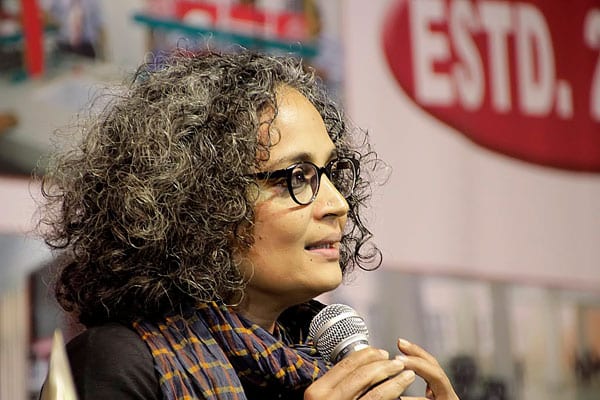
January 27, 2019; Fortune
One of the most famous nonprofit partnerships in the literary world ended this week when the Man Group announced it would no longer sponsor the Booker Prize Foundation, which awards the Man Booker Prize and the Booker International Prize. The Man Booker is among the most prestigious and coveted awards in the English-speaking literary world, considered by many to be second only to the Nobel.
The Booker Prize Foundation has said they are already in talks with another sponsor and confident they will be able to award the prize in 2020.
The prize was begun in 1969 by a food wholesaler called Booker, McConnell Ltd., which is no longer in business. It is awarded to the best novel written in English and published in the United Kingdom; the Booker International goes to the best work in translation, with the money split evenly between author and translator. In the past, the foundation has recognized literary luminaries such as Salman Rushdie (Midnight’s Children), Nadine Gordimer (The Conservationist), Margaret Atwood (The Blind Assassin), and Kingsley Amis (The Old Devils), who had famously criticized the prize in the past but upon winning announced, “Now I feel it is a wonderful indication of literary merit.”
When the Man Group took over the sponsorship, they more than doubled the prize money. Booker winners are awarded £50,000, and the shortlisted authors £2,500 each.
They have been sponsoring the prize since 2002, when Yann Martel won for Life of Pi. Luke Ellis, CEO of the Man Group, said,
It has been a privilege to sponsor the Man Booker Prizes for nearly two decades. Following a careful review of our funding initiatives, we have taken the decision to focus our resources on our “Paving the Way” diversity and inclusion campaign, as well as activities led by the Man Charitable Trust, which supports educational causes that promote literacy and numeracy. This was a natural point to re-evaluate our focus areas as our sponsorship agreement comes to an end.
Sign up for our free newsletters
Subscribe to NPQ's newsletters to have our top stories delivered directly to your inbox.
By signing up, you agree to our privacy policy and terms of use, and to receive messages from NPQ and our partners.
But as Rachel Cooke of the BBC reported in October, “Word is that Luke Ellis, its CEO, is somewhat less keen on the company’s £1.6m annual commitment to both it and the International Man Booker prize than his predecessor.”
Many have argued that the prize has been somewhat diminished in the last five years, since it was opened to American authors. Prior to 2014, novels were required to come from the UK, Ireland, and Commonwealth countries (mostly former British colonies). Since then, two American authors have won (Paul Beatty, for The Sellout, and George Saunders, for Lincoln in the Bardo). Cooke writes that the prize is now, ironically, losing ground in the US, where it used to be a way to introduce American audiences to the best of non-American English writing. (American prizes like the Pulitzer and the Wallace Stevens Award do not recognize non-American authors.) The explosive boost the prize used to lend to book sales is less pronounced than it was in the past, when winning could mean a tenfold increase in sales for the year. Publishers and authors drew up a letter and met with the foundation board, hoping to reverse the decision, but so far it has stayed.
Historically, the Man Group, which was founded in 1783, has said that their return for sponsoring the prize is the opportunity to practice corporate social responsibility, since the foundation sponsors literary programs in schools. They also benefit from the networking that comes at the annual dinner and the spectacular branding opportunity offered by the Man Booker Prize.
However, the BBC reported that “the BBC’s arts editor, Will Gompertz, said relations between Man Group and Booker organizers had been strained for some time, with a company source suggesting they felt underappreciated.”
Some authors have been less than gracious about the Man Group’s philanthropy, citing concerns about conflict of interest. Sebastian Faulks has been widely quoted calling the Man Group “the enemy,” saying they are “not the sort of people who should be sponsoring literary prizes; they’re the kind of people literary prizes ought to be criticizing.”
Author antics like Faulks’ are not new to the prize. Anthony Burgess informed the committee in 1986 that he would not attend the celebration unless he could be assured in advance he had won. (He lost and spent the night sulking in a hotel.) Philip Larkin threatened to jump out a window if Paul Scott’s Staying On didn’t win in 1977. In 1973, J.G. Farrell used his winner’s speech to denounce capitalism and donated his winnings to the Black Panthers, a standout moment in the prize’s history.
With the opportunity to put one’s name on one of the biggest and most storied prizes in English literature, it’s likely the Booker will be just fine even as the preeminence of literary prizes wobbles amidst arguments about elitism, favoritism, and the glut of content on the internet. And anyone wanting to put their name on a prize with a history of recognizing prickly authors like Salman Rushdie, V.S. Naipaul, and Kingsley Amis might know what to expect. But we will be interested to see what the Booker Prize Foundation’s next partnership relationship looks like.—Erin Rubin












